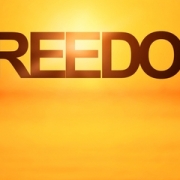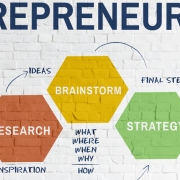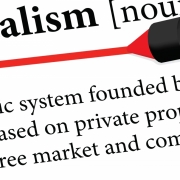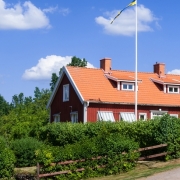A primary attribute of poetic justice is spontaneity, and it confirms the Law of Causality – one state or process contributes to another state or process. This law of reality also leads to emergence – the creation of an entity whose attributes (states or processes) interact with each other to become a complex system with its own identity. Examples of emergent complex systems that people interact with every day include earth’s climate, spoken language, common law, and market economics. Two of these, climate and economics, are the targets of computer modeling techniques whose users try to predict and control future outcomes. They have always been wrong, by a lot.
While most rational people feel fortunate to control the climate and cleanliness in their homes, and enjoy or manage the ever-changing weather outside, almost no one understands or appreciates the spontaneous order or emergent nature of complex economic systems. At the same time, government economic planners and progressive public policy think tanks deny it exists. It would make them irrelevant. Fortunately for enlightened civilization, Poetic Justice Warrior Russ Roberts is hastening their irrelevance.
It is always best to explain complexity by starting with the basic, essential elements. In other words, simplicity, and no one is better at using audio, video, books, articles, acting, and digital media to simplify complex economic systems for the benefit of anyone with an appetite to learn the so-called dismal science.
Complexity Worship
Our postmodern world is dominated by the idea that everyday life is too complex for most people to understand, navigate and provide for themselves. To make their point, the peddlers of complexity cite the explosion in technology, unlimited choice in retail, spiraling health costs, trade deficits, climate threats, inequality, and looming economic recession. The remedy for these imagined or government-induced calamities is always new government intervention, taxation, subsidies, tariffs, and greater control over education to indoctrinate more public servants. This is the political way.
By contrast, Russ Roberts is at the vanguard of the economic way. A basic distinction between the two is that the political way requires hierarchies of concentrated power; the economic way organizes itself into decentralized networks. An economics professor, Roberts is also a research fellow at the Hoover Institution, a commentator on NPR radio, regular blogger, and the author of several books including two novels and many published articles. However, Roberts is probably best known for his weekly podcast Econ Talk, which has a new episode every Monday, is downloaded by 80,000 listeners every week, and is hosted by another great repository of wisdom, The Library of Economics and Liberty.
For a charming depiction of the spontaneous order of the economic way, Russ Roberts produced the short video It’s a Wonderful Loaf. Integrating poetry, music, animation, and his gift for simplicity, Russ illustrates what happens when the state of self-interest, as taught by classical economist Adam Smith, is combined with the process of division of labor, and emerges as The Invisible Hand of the economic order. While this phrase is only used three times in Smith’s writing, and is widely attributed to his 1776 classic, An Inquiry into the Nature and Causes of the Wealth of Nations, he used it first in his lesser-known 1759 scientific breakthrough, The Theory of Moral Sentiments. This earlier book is Smith’s (and Roberts’s) favorite among the two, and Roberts dedicated his own book, How Adam Smith Can Change Your Life, to it in a witty and candid analysis of Smith’s discoveries about human nature.
In a live performance, Russ Roberts dons the costume of Adam Smith and compares the precise order of the universe with the imprecise temperament of human nature. He explains how civilized society achieves harmony, “the choreography of our peaceful existence,” and how it is akin to the force of gravity choreographing the movements of heavenly bodies. Here Smith and Roberts share a scientifically-derived, divinely inspired, and optimistic attitude about human nature. This is the essential difference between the economic way and the political way. The patron saint of complexity and the political way, John Maynard Keynes, maintains in his book General Theory, that people resort to their “animal spirits” when faced with uncertainty and volatility. To him, only dispassioned “experts” can maintain economic order.
Emergent Order
As poetic justice would have it, Roberts also has his not so invisible hand in the production of a very successful video series featuring Keynes and the patron saint of spontaneous economic order, Friedrich Hayek. The co-founder and CEO of the creative studio Emergent Order, John Papola, teamed up with Roberts “to be the first people to bring classical liberal ideas to life in a way that was entertaining, scholarly, and uncompromising while remaining even-handed.” Their Keynes vs. Hayek rap videos, Fear the Boom and Bust and Fight of the Century have become viral internet hits.
To communicate abstract concepts, explain significant economic values and ideas to mass audiences, and present it in a way that causes people to pay attention, is no small feat. Fear the Boom and Bust is a defense of the Austrian Business Cycle Theory, and a warning about the unintended consequences of government manipulation of money and credit. The financial meltdown of 2007 – 2008 is a prime example. The Fight of the Century condemns the ineptitude of top-down economic planners and highlights the wide dispersal of all relevant knowledge among all market participants. It is impossible for any group of “experts” to possess but a small part of the information contained in the prices of commodities and marketable securities. Price discovery is the indispensable process and the price mechanism is an unassailable state of spontaneous market economies.
With over five hundred Econ Talk podcasts, Roberts has covered many aspects of the human experience including the economics of education, trade, climate, and health care – all government planning sacred cows. He has also exposed the shortcomings of using complex empirical data sets and computer modeling for making public policy decisions. The data cannot measure or anticipate dynamic variables such as innovation and changing human preferences.
One of his finest examples is one of the most recent podcasts, Free Market Health Care, and his conversation last month with entrepreneur and anesthesiologist Keith Smith of the Surgery Center of Oklahoma. What Dr. Smith found in his experience with traditional health care institutions is that an inordinate amount of their resources are spent on administration and infrastructure instead of patient care. Patients have no idea what the exorbitant charges for their health care services will be, and management tells the doctors how much they are worth. This is universal among all government planned and subsidized industries (see education). Fed up with the lack of price transparency, lack of self-determination on their value, and a bloated bureaucracy, he and his partners opened their independent surgery center in 1997. Their prices are posted online, have not changed in twenty years, and they only take cash. This is radical, life-affirming, and predictable to people who have learned the economic way.
Poetic Justice Warrior Russ Roberts has achieved something remarkable. Roberts has taken the dismal science, so dubbed by a socialist bureaucrat who foresaw his looming irrelevance at the invisible hand of free markets, and transformed economics into something comprehensible, interesting, and fun.













